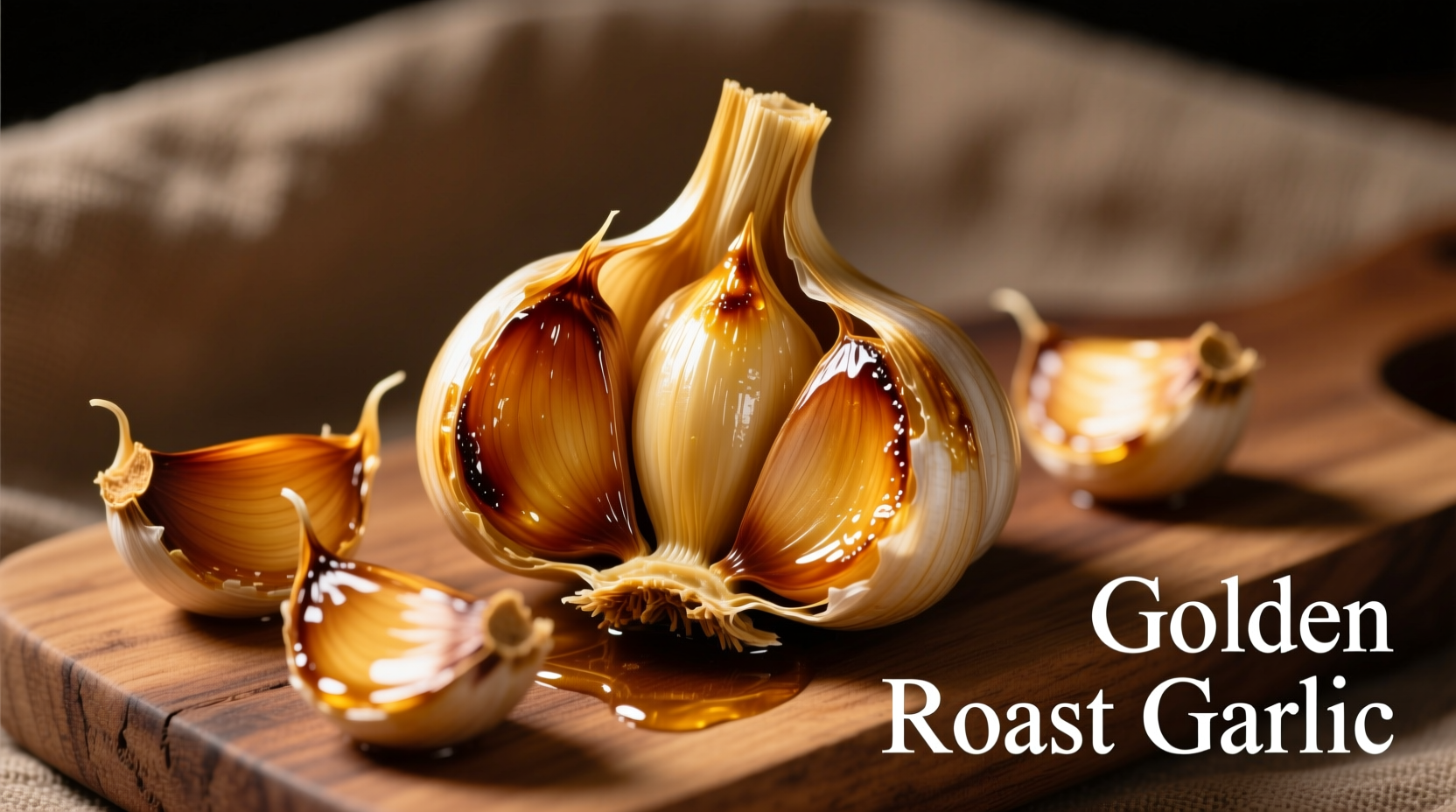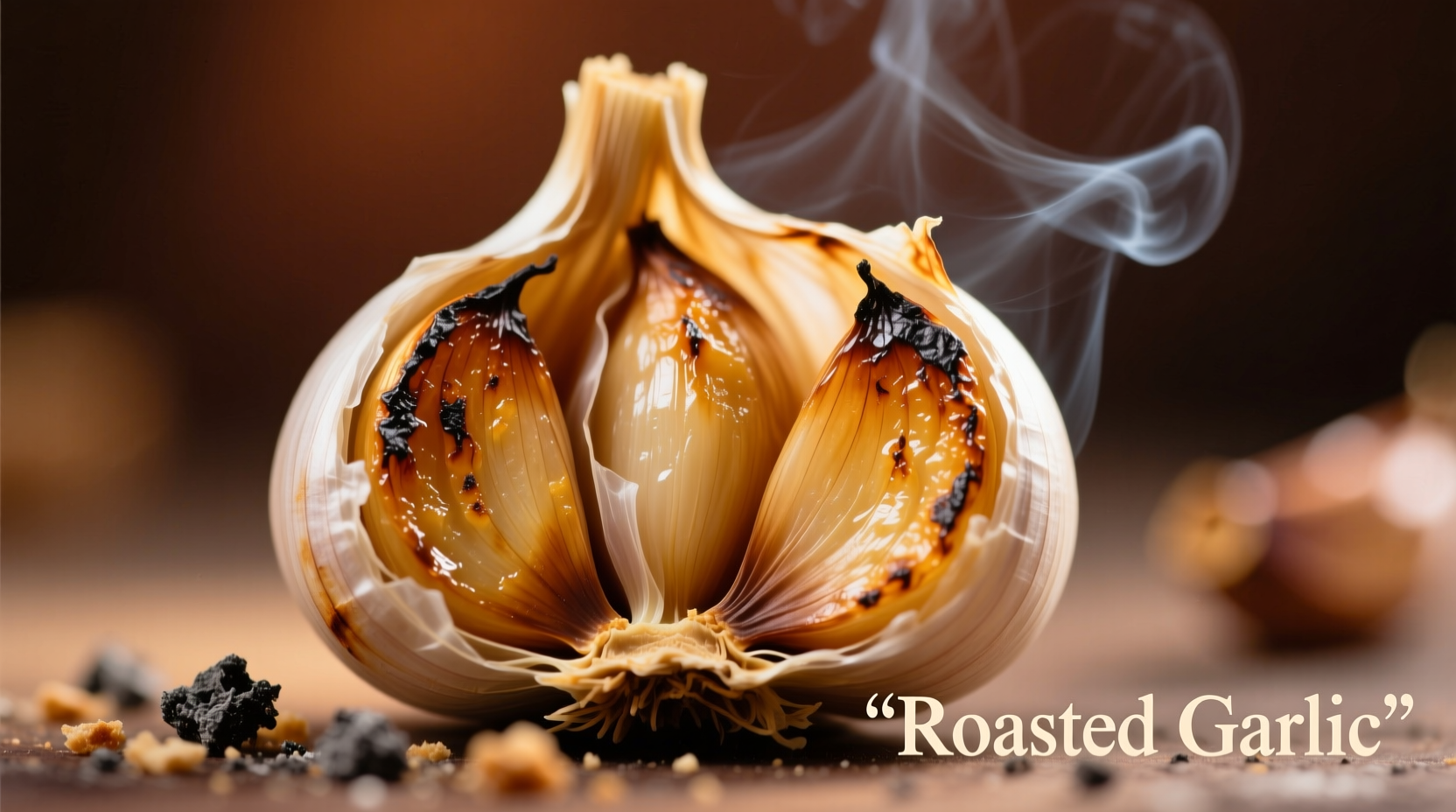Roasting a whole head of garlic transforms its sharp, pungent flavor into a sweet, mellow spread with rich umami notes—perfect for elevating sauces, breads, and roasted vegetables. This simple technique requires just 40-60 minutes in the oven at 400°F (200°C), minimal prep, and unlocks garlic's natural sugars through caramelization without added fats.
The Magic Transformation: From Pungent to Perfectly Sweet
When you roast an entire head of garlic, something remarkable happens. Those sharp, sulfuric compounds responsible for raw garlic's bite break down through the Maillard reaction and caramelization. What emerges is a soft, golden-brown paste with complex sweet notes and zero harshness—ideal for spreading on crusty bread or blending into dressings. Professional chefs rely on this technique because it delivers maximum flavor impact with minimal effort.
Your Step-by-Step Roasting Guide
Follow this foolproof method for perfectly roasted garlic every time:
Preparation Essentials
Start with fresh garlic heads showing tight, firm cloves and minimal browning. You'll need just three items:
- 1 whole garlic head
- Olive oil (1-2 teaspoons)
- Aluminum foil
The Roasting Process Timeline
| Time | Temperature | Visual Cues | Action Required |
|---|---|---|---|
| 0 minutes | 400°F (200°C) | White cloves visible | Trim top ¼ inch, drizzle oil, wrap tightly |
| 30 minutes | 400°F (200°C) | Sides beginning to brown | Check for softness with fork |
| 40-60 minutes | 400°F (200°C) | Deep golden brown, soft texture | Remove when cloves yield to gentle pressure |
Avoid These Common Roasting Mistakes
Even experienced cooks make these critical errors that compromise results:
- Skipping the trim: Failing to slice the top exposes cloves to direct heat, causing uneven cooking
- Under-oiling: Too little oil leads to dry, tough cloves instead of creamy texture
- Wrong temperature: Below 375°F won't properly caramelize; above 425°F risks burning
- Ignoring doneness cues: Timing varies by head size—always test softness rather than relying solely on clock
Creative Ways to Use Your Roasted Garlic
Don't limit yourself to spreading it on bread. Professional kitchens maximize roasted garlic's potential through these applications:
Flavor-Boosting Techniques
- Compound butter: Blend with softened butter and herbs for steak topping
- Mayonnaise transformation: Mix 2-3 cloves per ½ cup mayo for gourmet sandwiches
- Stock enhancement: Stir into vegetable or chicken stock for instant depth
- Pasta infusion: Mash into olive oil before adding cooked noodles
Storage Guidelines for Maximum Freshness
Proper storage maintains quality and prevents spoilage:
- Refrigeration: Store in airtight container for up to 10 days (USDA Food Safety Guidelines)
- Freezing: Freeze whole heads in foil for 3 months; individual cloves in oil for 6 months
- Oil preservation: Submerge cloves in olive oil and refrigerate for 7 days maximum (FDA warning: prevents botulism risk)
Health Benefits Backed by Research
Roasting preserves many of garlic's health-promoting compounds while making them more bioavailable. According to the American Heart Association, roasted garlic maintains allicin derivatives that support cardiovascular health. The Journal of Agricultural and Food Chemistry confirms that the roasting process actually increases certain antioxidant compounds compared to raw garlic, particularly S-allyl cysteine which shows enhanced stability through cooking.
When Roasted Garlic Works Best (and When It Doesn't)
Understanding context boundaries ensures perfect results:
- Ideal applications: Creamy sauces, mashed potatoes, salad dressings, bread spreads
- Limited effectiveness: Dishes requiring sharp garlic notes (vinaigrettes, quick sautés)
- Flavor pairing science: Combines best with earthy ingredients (mushrooms, root vegetables) and rich proteins (beef, lamb)
- Texture consideration: Avoid in crispy applications where moisture would compromise texture

Raw vs Roasted Garlic: Key Differences
| Characteristic | Raw Garlic | Roasted Garlic |
|---|---|---|
| Flavor profile | Sharp, pungent, sulfurous | Sweet, mellow, umami-rich |
| Texture | Crisp, firm | Creamy, spreadable |
| Digestibility | May cause heartburn | Gentler on stomach |
| Best cooking method | Add late in cooking | Add early or as finished element |
| Allicin content | High (immediate) | Transformed compounds |
Mastering the Technique: Pro Tips
Take your roasted garlic to professional levels with these advanced techniques:
- Temperature control: For deeper caramelization without burning, start at 425°F for 15 minutes then reduce to 375°F
- Flavor infusion: Place a sprig of rosemary or thyme inside the foil packet during roasting
- Texture perfection: Squeeze cloves from the base upward for clean extraction
- Batch roasting: Roast multiple heads simultaneously—timing remains consistent regardless of quantity











 浙公网安备
33010002000092号
浙公网安备
33010002000092号 浙B2-20120091-4
浙B2-20120091-4